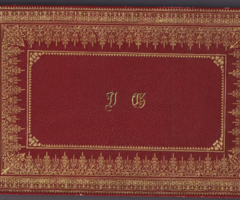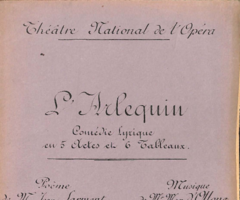Max d’ OLLONE
1875 - 1959
Composer, Conductor
Born into an aristocratic family in Besançon, Max d’Ollone began composing at a very young age and caught the attention of Gounod, Saint-Saëns and Massenet. A pupil of Lavignac, Gédalge and Massenet at the Paris Conservatoire, he was awarded the Prix de Rome in 1897 for his cantata Frédégonde. Although he tackled all genres, he devoted himself mainly to writing operas, which combined the influence of Wagner and of his teacher Massenet with his own personal style. Rooted in the Romantic tradition, he rejected the innovations of the Viennese School. He wrote his own libretto for Retour, which was premiered in Angers in 1912, and reprised in Paris in 1919 with Germaine Lubin in the leading role. This was followed by L’Arlequin (1924), an opéra comique, Georges Dandin ou le Mari confondu (1930), and a drame lyrique, La Samaritaine (composed in 1930 and first performed in 1937). Some of his operas, though, remain unpublished, like Jean (1904), or only received a partial premiere: only one scene from L’Étrangère (1911) and from Les Amants de Rimini (1915), and one act from the comédie lyrique Les Uns et les autres (1915) were staged. Max d’Ollone was heavily involved in teaching and insisted on the importance of music education in the evolution of the human character. Director of the Concerts Populaires d’Angers, he went on to teach composition at the École Normale de Musique and at the Paris Conservatoire, and was director of the Fontainebleau Conservatory and the Opéra-Comique. His broad range of experiences led him to publish Le Langage musical (1952) and Le Théâtre lyrique et le Public (1955).
Scientific publications
Articles
All roads start from Rome...
Publication
Lettres de compositeurs à Camille Saint-Saëns
Permalink
publication date : 26/09/23





